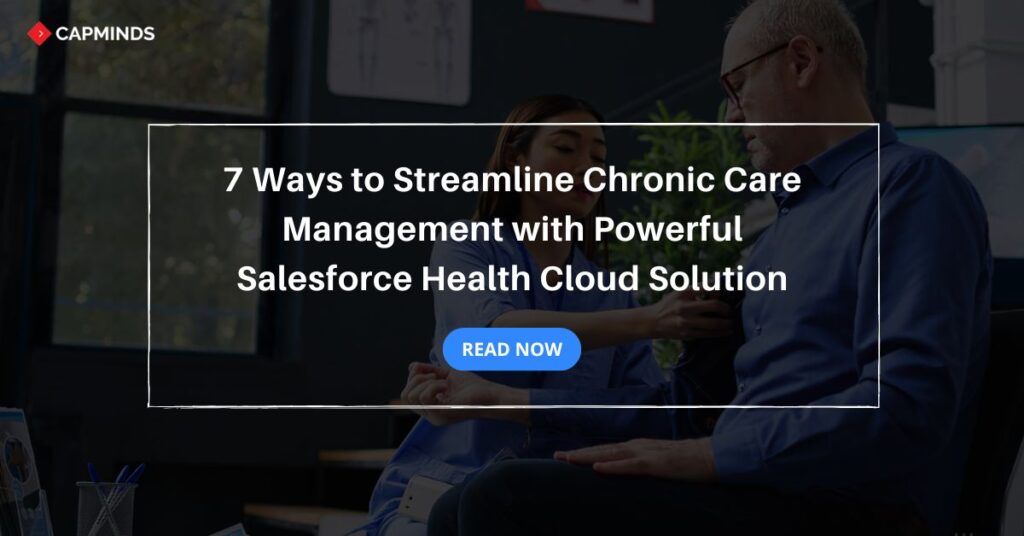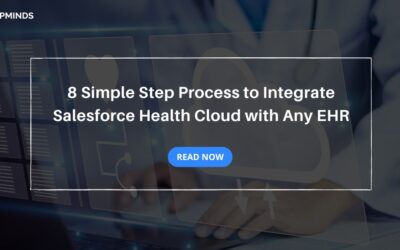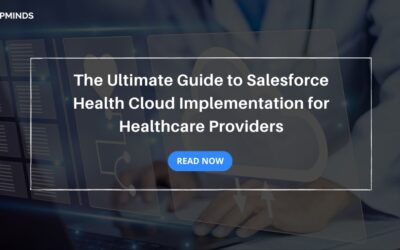7 Ways to Streamline Chronic Care Management with Powerful Salesforce Health Cloud Solution
Chronic illness is one of the most pressing challenges in healthcare, affecting millions of lives worldwide. Managing these conditions requires a robust approach but addresses not only includes medical needs but also social and lifestyle factors.
However, fragmented systems, insufficient collaboration, and overwhelming administrative tasks often hinder effective chronic care management.
Using Salesforce Health Cloud for CCM benefits in many ways. This powerful solution offers various tools to unify patient data, promote seamless communication among care teams, and empower patients through education and engagement. By leveraging its advanced features, healthcare providers can overcome these obstacles associated with CCM.
In this blog post, we have shared how to streamline chronic care management with a powerful salesforce health cloud solution.
The Challenges Associated with Chronic Care Management
Unlike others, chronic care management requires more efficient and personalized care. It involves addressing the most complex needs of patients with ongoing health conditions. Managing chronic disease involves various challenges which include:
- Many patients struggle to adhere to treatment recommendations, which can result in problems and increasing symptoms.
- Chronic diseases can create fluctuating symptoms, making it difficult to manage them efficiently.
- Access to healthcare resources and specialists can differ by geography, influencing chronic illness management.
- Patient participation can make it challenging to assure compliance, particularly among older persons who may be less comfortable with digital technologies.
- Healthcare providers, patients, families, and other carers must all make decisions together to provide care coordination.
- Fragmentation in the healthcare system can be a barrier to managing chronic conditions
Effective chronic care management requires integrated solutions to bridge the gap, reduce inefficiency, and improve patient outcomes.
Salesforce Health Cloud Solution [Features + Benefits]
Salesforce Health Cloud is a CRM focused on healthcare. It enables healthcare organizations to address patient-provider relationships and other aspects of care coordination, while also providing patients with more personalized health experiences.
This includes the capacity to communicate with other health IT systems, such as electronic health records (EHR). By interfacing with EHR, health practitioners will most likely have access to an integrated view of patients’ health information, as well as clinical and non-clinical data.
Salesforce Health Cloud provides a comprehensive solution for:
- Managing Patient Information
- Ensure secure communication among healthcare workers.
- Support data-driven decision-making.
Key features of Salesforce Health Cloud include:
- Unified Patient Profiles
- Seamless Care Team Collaboration
- Patient Engagement Tools
- Advanced Analytics and Reporting
- EHR Integration and Interoperability
- Scalability Across Healthcare Sectors
Related: The Ultimate Guide to Salesforce Health Cloud Implementation for Healthcare Providers
7 Ways to Streamline CCM with Salesforce Health Cloud
1. Centralize Patient Data for Better Insights
Salesforce Health Cloud collects data from multiple sources into a single platform. So that providers can have a comprehensive overview of patient profiles in one place instead of navigating to multiple systems. The data include medical history, lab results, and lifestyle data of patients.
This centralized data enables care teams to:
- Identify trends and risk factors in chronic conditions
- Create actionable insights to improve patient outcomes.
2. Develop Personalized Care Plans
Various tools which include branching logic and evidence-based guidelines, Salesforce Health Cloud makes it easier for providers to create individual care plans.
Utilizing these tools will help tailor interventions to specific patient conditions and update care plans dynamically based on patient progress. This will enable patients to engage in their care and improve long-term health outcomes.
3. Improve Team Collaboration
Effective chronic care management requires intense collaboration between diverse care team members. Salesforce Health Cloud solution offers secure communication channels for sharing patient updates with other providers and task management tools to coordinate responsibilities.
Improving provider collaboration will ensure continuity in care, reducing errors, and redundancies.
4. Simplify Transitions of Care
Transitions like hospital discharge and home care may often result in fragmented care during chronic care management.
Salesforce Health Cloud has integrated care management features that help to smoothen this process. This feature streamlines the transition by:
- Tracking patient progress across settings.
- Providing care plans tailored to each stage of recovery.
This way, the readmission rates can be reduced and the patients can receive appropriate follow-up care.
5. Utilize Social Determinants of Health
Social determinants like housing, education, and income significantly influence health outcomes. Salesforce Health Cloud incorporates SDOH data into care planning to:
- Identify barriers to effective chronic care management.
- Develop strategies to address these factors, such as linking patients to community resources.
SDOH care leads to more equitable and effective delivery of care.
6. Leverage Real-Time Monitoring
Salesforce Health Cloud can integrate with various tools including wearable devices like smartwatches, fitness trackers, and remote patient monitoring tools.
This allows for real-time monitoring of patient health vital signs and health indicators. Providers can proactively intervene when irregularities are found in health vitals. Real-time monitoring helps chronic illness management by identifying problems before they worsen.
7. Empower Patients Through Education
Salesforce Health Cloud has a patient education tool that educates patients on their diseases and allows them to better self-manage.
Salesforce Health Cloud delivers diagnosis-specific training resources and interactive tools to help patients navigate their care regimens. Well-informed patients are more likely to stick to their treatment plans and seek preventive care.
Related: 8 Simple Step Process to Integrate Salesforce Health Cloud with Any EHR
Salesforce Health Cloud Solution From CapMinds
CapMinds offers you the smartest and safest Health Cloud Security and Interoperability services across healthcare platforms. Our advanced scalable features, secure cloud, system patching, and version upgrades will transform your organization into a future tech-friendly one.
We offer integrated services across various health systems and platforms, unique customization, and 24/7 support.
Our medical device integration, connected health, healthcare cloud, and cybersecurity solutions like Salesforce Health Cloud cover health tech startups, the federal government, multi-specialty practices, large healthcare practices, and small clinics.
Our most popular features:
- HL7 FHIR
- HIPAA compliance
- MACRA, MIPS
- Meaningful Use
- Cloud Security
- AI solutions
- Cloud-based EHR solution with advanced techs guaranteeing your medical facility 100% cybersecurity
CapMinds’ Interoperability and compliance services protect your patient’s health data with maximum security, privacy, and confidentiality. We update ourselves with the latest versions, such as HL7 Version 2, Version 3, FHIR, SMART on FHIR, CDA, X12, Mirthconnect, and security standards.
CapMinds offers the best HL7 integration and HL7/FHIR interface development services for the federal government, health tech startups, laboratories, clinics, and practices.
“Partner with us to get the best out of future-proof health cloud security services”




